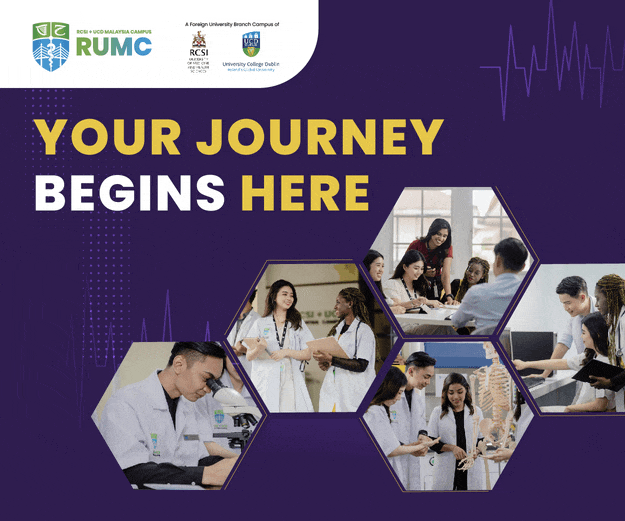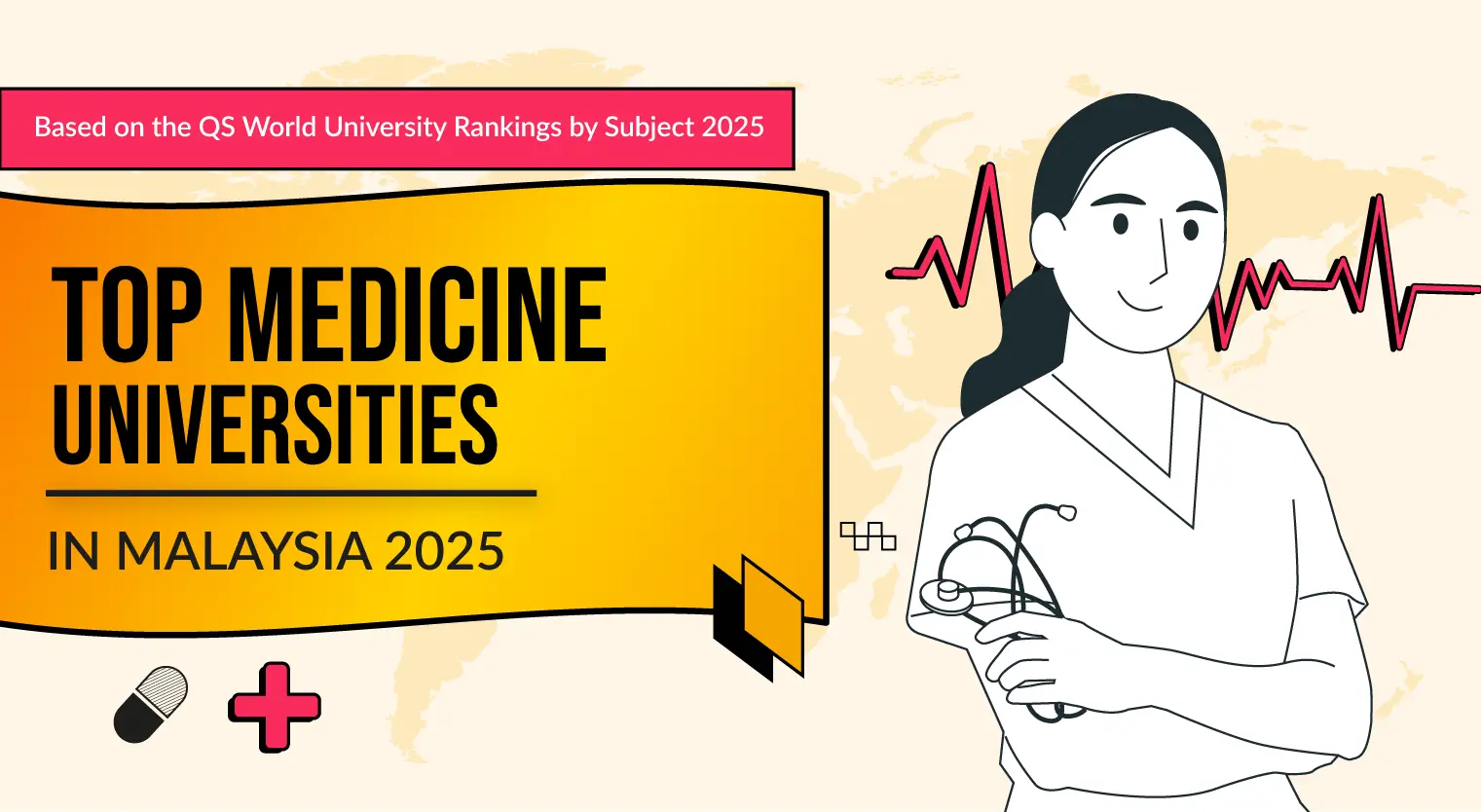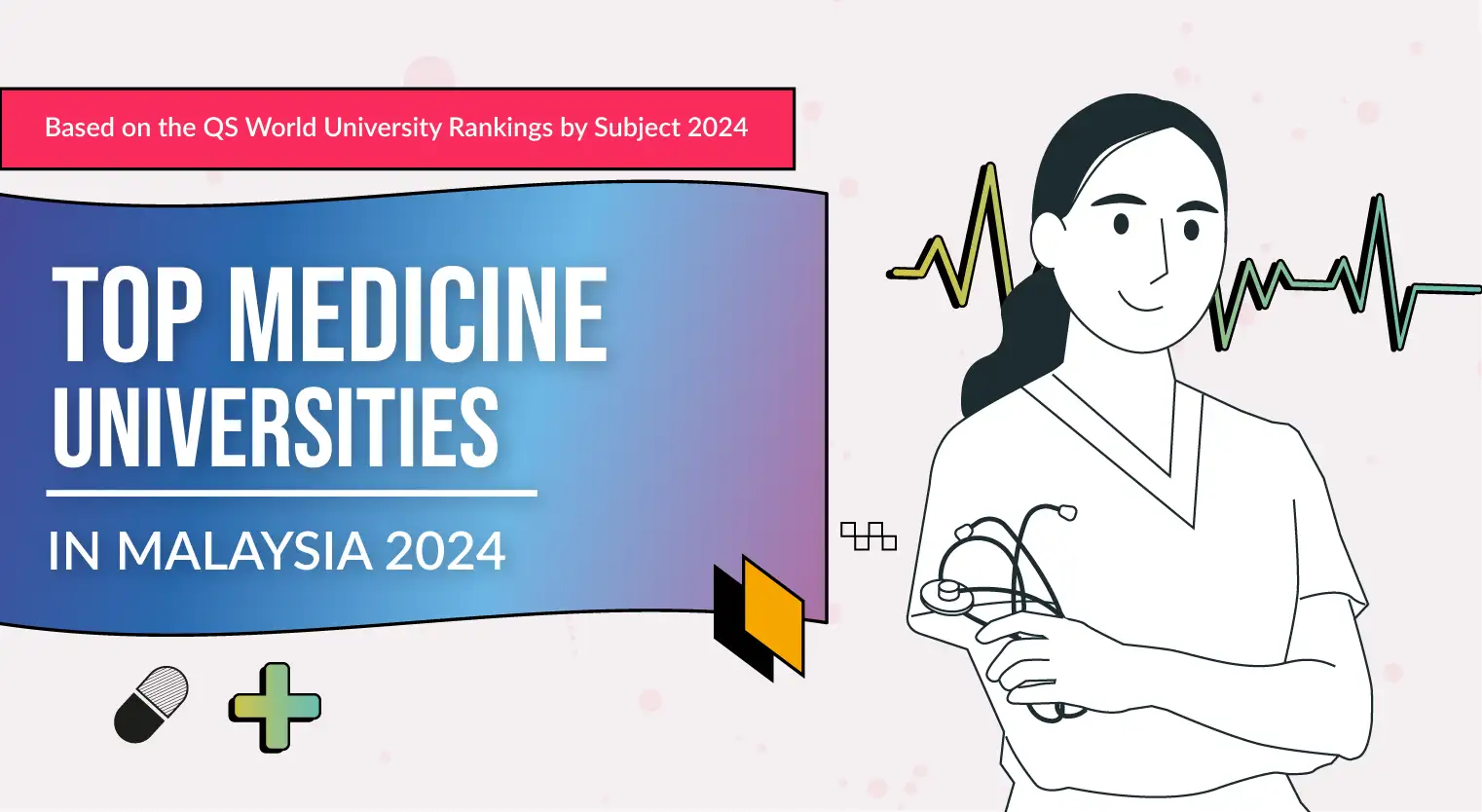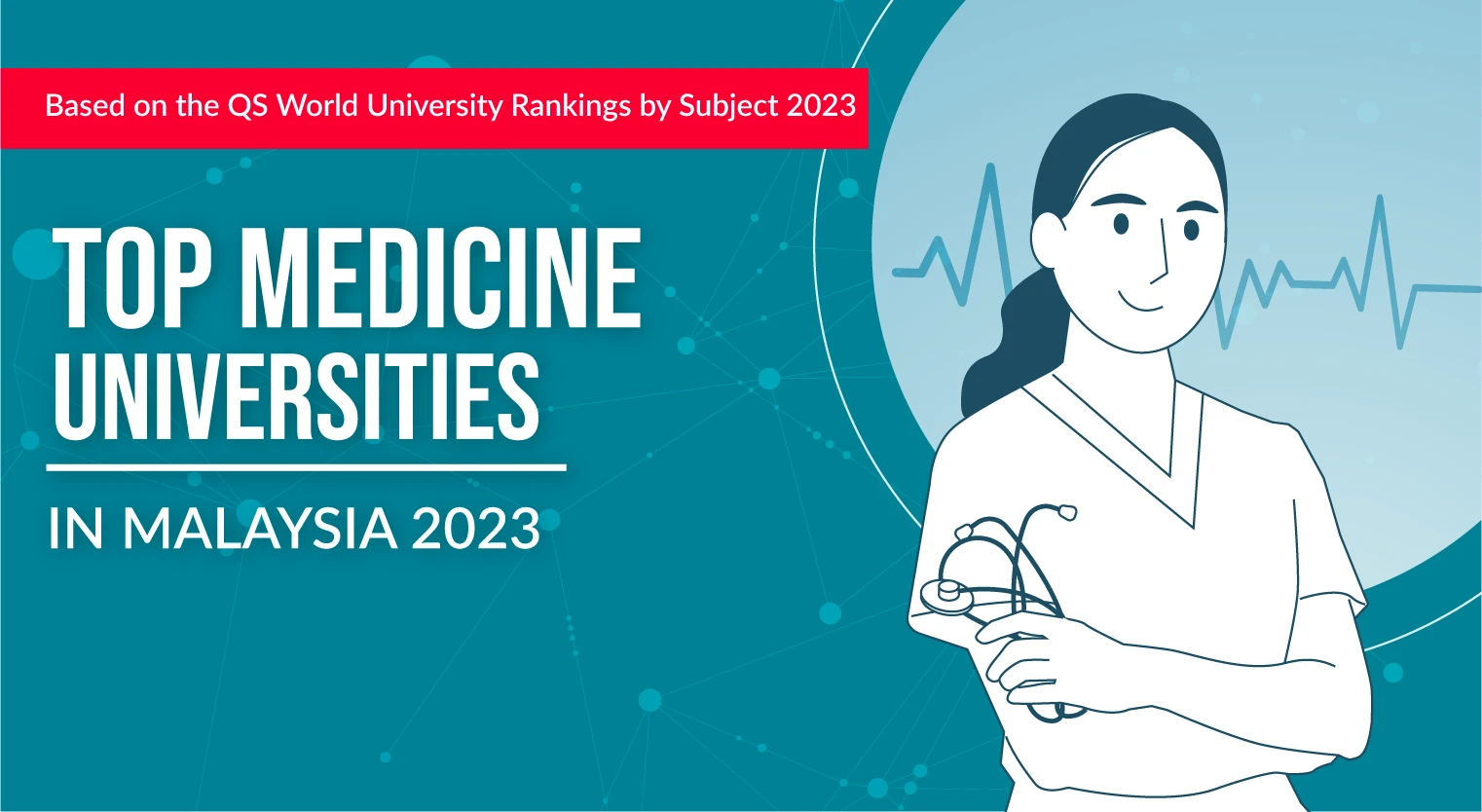17 Jobs in Healthcare for Those Looking To Make a Difference
Whether you want to work directly with patients or labour away behind the scenes, there will be a job that suits you in healthcare.
Updated 23 May 2022

If you’re seeking a rewarding job that can make a difference in people’s lives, the healthcare industry offers plenty of opportunities for you to do so.
While you’re likely to be familiar with the ever-present doctors and nurses, there are many other healthcare roles too. Whether you want to work directly with patients or labour away behind the scenes, there will certainly be a job that suits you.
Here’s a comprehensive list of jobs in the healthcare field to help you live your dream of caring for people. Let’s go!
#1. Doctor

Arguably the most well-known profession in the healthcare field, this profession needs no introduction. As a clinical doctor, you’ll be using your hard-earned medical knowledge to diagnose illnesses and treat patients.
The path to becoming a doctor is long and arduous but it can be an immensely satisfying and rewarding career. Furthermore, there are many paths that you can branch into as a doctor. While pursuing a medical specialty is an obvious choice (e.g. paediatrics, anaesthesiology, oncology), you can also venture into clinical research, hospital administration, public health and academia.
PRO TIP
Want to be a doctor? There are many educational requirements that you’ll need to meet to pursue medicine. Here’s a step-by-step guide on how to become a doctor in Malaysia.
#2. Dentist

Dentists are highly trained medical professionals who specialise in dental and oral care. As a dentist, your job scope involves diagnosing, treating and preventing diseases in the mouth through procedures like fillings, extractions, dentures, scaling and emergency care.
Similar to doctors, there are many types of dentistry specialties in the industry you can venture into depending on your interests. Whether you want to be an orthodontist (specialise in correcting irregularities of the teeth, bite and jaws), paediatric dentist (specialise in children’s oral care) or endodontist (specialise in root canal), your options are wide.
PRO TIP
Make sure your dentistry degree is recognised by the Malaysian Dental Council. Otherwise, you’ll risk not being able to practise as a dentist. Learn more about studying dentistry here.
#3. Dentist technologist

Think the healthcare field isn’t for the creative soul? Meet the dental technologist.
Dental technologists are the ones responsible for designing and making dental prostheses such as dentures, crowns, implants and braces. These professionals are a crucial part of the dental team but are often found in dental laboratories instead of dental clinics, which is probably why you’ve never heard of them.
While there’s no getting around the science (you’ll need to be well-versed in dental and facial anatomy), the job also calls upon your artistic side. As part of your job, you’ll be creating models of a patient's mouth and pouring materials into moulds to produce dental prosthesis, not unlike the work of an artisan. You’ll also need good colour perception to ensure that the artificial teeth that you’ve created look natural in comparison to the patient’s original teeth.
#4. Optometrist
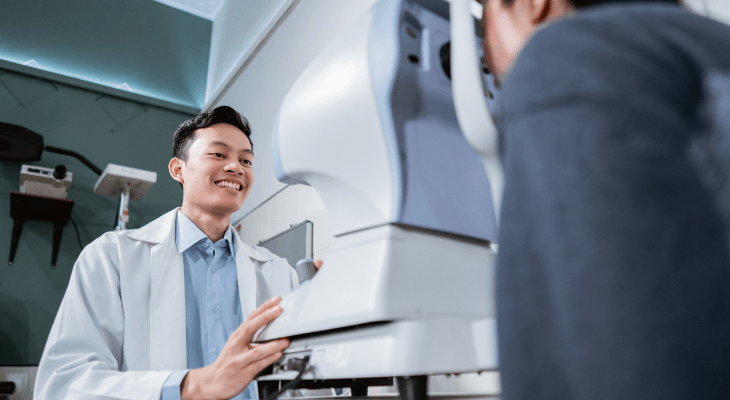
An optometrist is a professional who specialises in eyecare health.
As an optometrist, you’ll be examining the eyes to determine if there are any vision-related problems. This includes visual acuity, short and long-sightedness, squint, and eye diseases such as red eye, glaucoma and cataract. From here, you’ll decide the best course of treatment for your patients whether it’s glasses, contact lenses or visual therapy.
DID YOU KNOW
Opticians, optometrists and ophthalmologists are all different professionals with different qualifications. Learn about the differences here.
#5. Nurse

Contrary to popular belief, nursing is a high-skilled profession that requires an enormous amount of training. Nursing isn’t for everyone — it calls for a highly observant, organised and compassionate individual with substantial knowledge in biology and science.
As a nurse, you’ll be assisting doctors and providing direct patient care by performing tasks such as administering medication, treating wounds, performing physical exams and monitoring vital signs. You can choose to work in a variety of settings whether it’s hospitals, clinics, nursing care facilities or patients’ homes.
Your career in nursing isn’t just limited to general practice. You can also specialise in specific departments such as paediatric, critical care, emergency and trauma, or mental health. Some nurses (i.e. perioperative nurses) are even trained to work in operating theatres alongside surgeons and specialists.
PRO TIP
Nurses are highly sought-after according to TalentCorp Malaysia’s Critical Occupation List (COL). Future-proof yourself with a nursing degree here.
#6. Pharmacist

Pharmacists specialise in the right way of storing, preserving and providing medication. They’re responsible for guiding patients on how to take their medication and informing them on the potential adverse effects.
A common misconception is that pharmacists only work in hospitals or retail pharmacies (e.g. Caring Pharmacy, AA Pharmacy) to dispense medication. On the contrary, pharmacists can also work in industrial pharmacy (to develop, improve and maintain the quality of drugs), military pharmacy (to assist with military peacekeeping operations and humanitarian assistance), pharmacy informatics (to improve outcomes of medication through data and technology) and academia.
PRO TIP
Interested in how medication interacts with your body? A Degree in Pharmacy might just be for you!
#7. Psychologist

Psychologists are an important part of the healthcare service as they specialise in treating mental health concerns by examining a person's experience and exploring underlying issues. This includes anxiety, different types disorders, depression as well as domestic and sexual violence, bereavement and other negative life events.
In fact, the field offers different branches with different roles and responsibilities you can pursue depending on your interests and qualifications. For example, clinical psychologists use psychotherapy approaches to diagnose and treat patients while a forensic psychologist works with the criminal justice system and treats offenders to reduce chances of reoffending.
As a psychologist, you’ll have the opportunity to work in a wide range of settings alongside doctors and a range of other psychological professionals.
PRO TIP
To become a practising psychologist in Malaysia, you need to be registered with the Malaysian Allied Health Professions Council. Learn how you can do that here.
#8. Dietitian

Dietitians are trained professionals who promote nutritional well-being and treat medical conditions through medical nutrition therapy. They often work with people diagnosed with chronic diseases and suggest dietary changes.
As a dietitian, you need to be armed with knowledge in food science and nutrition as well as different types of chronic diseases so you can better manage their dietary plans. For instance, a meal plan for someone with diabetes will look different from someone with high cholesterol.
So, if you’ve thought about transforming your love for food, health and vitality into a career, this is it.
PRO TIP
You’ll need an academic qualification before you can practise as a full-fledged dietitian. Study a dietetics degree here.

#9. Nutritionist

Similar to a dietitian, a nutritionist is also someone who promotes healthy eating habits.
However, nutritionists work exclusively with healthy individuals who are aiming to improve their nutrition intake and lifestyle by making better dietary choices. Unlike dietitians who primarily work in medical settings (e.g. hospitals, nursing homes), nutritionists often work in commercial settings such as fitness centres, wellness centres, nutritional supplement companies and health food restaurants.
PRO TIP
Confused about the differences between dietitian and nutritionist? Learn more about the differences here.
#10. Paramedic
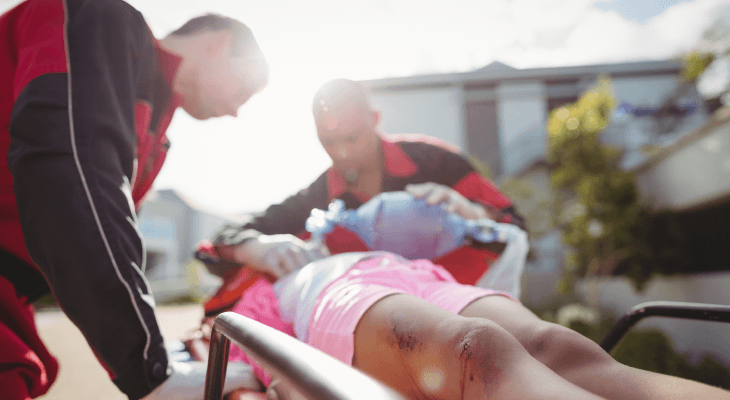
If you want to join the medical field and help people without going through the gruelling training of being a doctor, you can consider becoming a paramedic.
Paramedics are specifically trained medical professionals who specialise in emergency treatment until they can get to a doctor for further treatment. Your role includes resuscitating and stabilising patients using sophisticated techniques, equipment and drugs such as defibrillators and spinal and traction splints. You’ll also be providing support to patients, their loved ones or the public during intense scenarios.
Since your job revolves around emergency and unpredictable situations, expect to be working in unconventional settings such as cruise ships, oil-drilling rigs, ocean rescue teams or social events.
Apply for university with EduAdvisor
Secure scholarships and more when you apply to any of our 100+ partner universities.
Start now#11. Midwife

Does your interest revolve around the health of mothers and newborns? Consider yourself a strong advocate for women and families? This career might be for you.
Midwives are experts on the areas of pregnancy and childbirth. You’ll be providing professional support, care and advice to women during pregnancy, labour and postpartum period. This includes monitoring maternal and fetal wellbeing during labour, performing spontaneous deliveries, and conducting emergency measures in a doctor’s absence.
PRO TIP
In order to be a practising midwife in Malaysia,you’ll need to first be a registered nurse with 2 years of clinical working experience before undergoing midwifery training and passing the registration examination by the Midwives Board Malaysia.
#12. Therapist

If you’re interested in helping people and providing life-changing treatments, consider becoming a therapist.
Therapist is a broad designation that refers to professionals who are trained to provide treatment and rehabilitation. While the term is often used by counsellors and psychologists, it can also include professionals who specialise in treating impairment, diseases and disorders such as occupational therapist, speech and language therapist, physiotherapist and art therapist.
Your responsibilities will vary depending on which career you delve into. For example, an occupational therapist helps people who have difficulties carrying out daily activities due to illness, disability or trauma. Meanwhile, a speech and language therapist provides treatment for children and adults who have difficulties with communication, eating, drinking and swallowing.
#13. Biomedical scientist

As a biomedical scientist, you will deal with the nitty-gritty of laboratory work by carrying out scientific tests to support diagnostics and treatments.
Part of your job includes investigating a range of medical conditions (e.g. cancer, diabetes, AIDS, hepatitis), performing screening for diseases, and monitoring effects of medications and treatments.
In short, doctors and many other health departments will be unable to function without you verifying illnesses and treatments.
PRO TIP
Fascinated with chemical processes in the human body and how our cells function? Explore more with a bioscience degree.
#14. Medical laboratory technologist
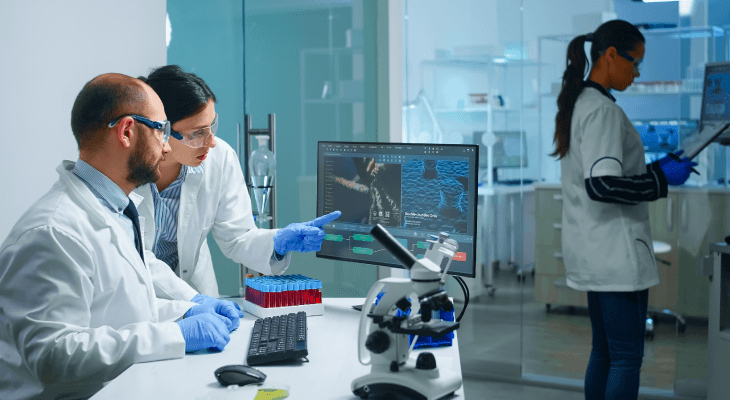
Prefer to work behind the scenes? Perhaps you’re more comfortable with laboratory related tasks than dealing with patients all day. This role might suit you.
Medical laboratory technologists run diagnostic tests on a wide variety of specimens (blood, urine, bodily fluids and tissue samples) in hospital laboratories and health clinics to produce test results to help doctors diagnose a disease. Although your work is largely in the laboratory, you may also assist in conducting specialised biopsies to collect samples and tissues directly from patients.
#15. Health informatics

If you’re looking for a future-proof career that combines technology and healthcare, you can’t go wrong with health informatics.
Health informatics involves the use of information, technology and data analytics to provide better care for patients. With the rapid growth of digital health tools such as smart health watches, wearable biosensors and telemedicine, there is more data on patient health than ever before. As a data scientist in the healthcare field, you will develop methods to gather, store, analyse and interpret massive amounts of patient health data to accelerate the diagnostic process and improve patient care and patient outcomes.
Since your expertise revolves around data and software, you can find yourself working in a variety of places such as medical device manufacturers, pharmaceutical companies, commercial insurance companies and governmental institutions.
DID YOU KNOW
MySejahtera and other telemedicine apps are invented by a team of software engineers, developers and health informatics!
#16. Environmental health professional

Are you the type to think about the bigger picture? Consider becoming an environmental health professional.
In this role, your concerns will surround environmental issues and ensure they meet statutory regulations. This includes areas such as food safety and hygiene, noise and environmental pollution, housing standards and public health. Part of your role includes identifying and investigating environmental cases, collecting polluted samples, assessing health risks and working with other health professionals on programmes to improve wellbeing.
Basically, you’ll be at the forefront ensuring that the public’s health and wellbeing are taken care of on a larger scale.

#17. Public health practitioner

Public health practitioners are responsible for the various health programmes such as anti-smoking campaigns, blood donation drives and the COVID-19 immunisation programme.
Part of your job is to promote and support public health awarenessby working with a variety of healthcare professionals to ensure that the right information gets out. You’ll know how the healthcare system works, what specialist and agency to refer to, what specific campaigns to organise based on issues — all to ensure the public gets adequate information and support.
Consider yourself the PR of the healthcare system!
We hope this gives you a good idea of what type of jobs you can pursue in the healthcare field. As you can see, there are plenty of roles that you can explore, whether you want to work in patient care, behind the scenes in the laboratory or somewhere in between. As long as you have passion and the empathy, then you’re good to go!


